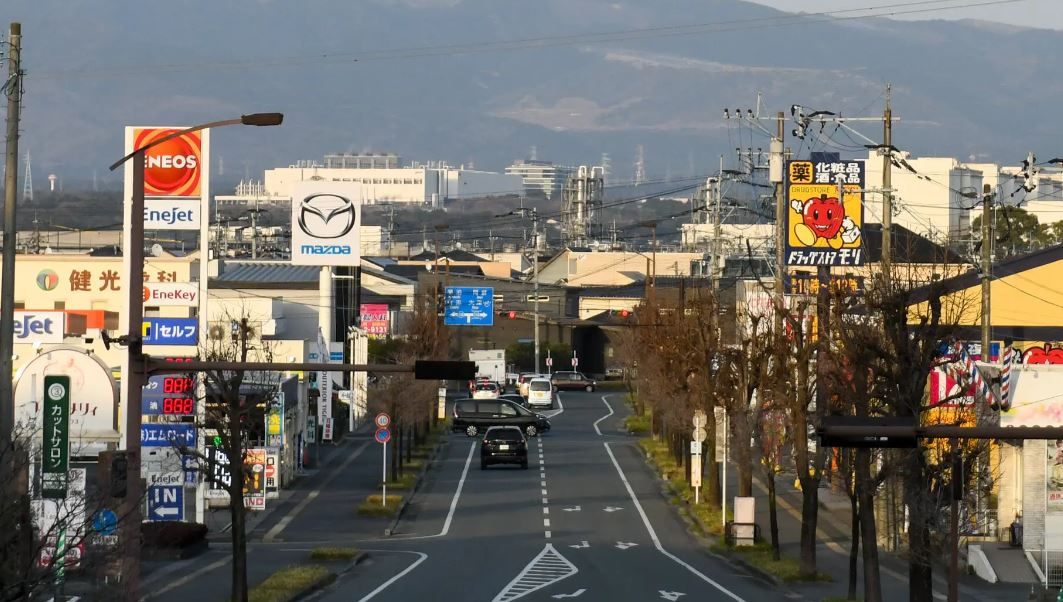The Taiwan Semiconductor Manufacturing Company (TSMC) is orchestrating a significant transformation in the small Japanese town of Kikuyo, as it solidifies its position as a crucial node in Asia’s semiconductor supply chain.
Renowned globally for its dominance in the semiconductor industry, TSMC is expanding its operations beyond its home base in Taiwan. The company, backed by substantial investments from the Japanese government, has established a chip fabrication facility, commonly known as a “fab,” on a ridge overlooking Kikuyo. This marks TSMC’s first fab outside of Taiwan since 2018.
Already, the area surrounding the fab is bustling with TSMC employees and suppliers. Chemical companies and equipment manufacturers are eagerly competing for a share of the semiconductor market. Japanese tech giants like Sony, Denso, and Toyota, significant purchasers of TSMC semiconductors, are funneling substantial investments into TSMC’s Japan subsidiary.
The influx of TSMC-related activities has spurred economic growth in Kikuyo, with signs in traditional Chinese characters advertising services for the growing number of newcomers. The town’s foreign population has doubled in the past year, indicating the rapid pace of change.
The development of a high-tech factory town in Kikuyo underscores the shifting dynamics of the semiconductor industry. Previously, the supply chain for semiconductors relied heavily on a few factories in Taiwan. However, the Covid-19 pandemic, coupled with geopolitical tensions and a global chip shortage, highlighted the risks of such centralized production.
In response, governments worldwide have committed billions of dollars to localize chip manufacturing. TSMC, in particular, has pledged to establish new fabs in the United States, Japan, and Germany over the past four years.
The U.S. Commerce Department recently announced grants of up to $6.6 billion to TSMC, earmarked for the construction of a third factory in Phoenix, Arizona. Despite delays in TSMC’s American ventures, the fab in Japan is already operational and set to be fully functional by the year’s end.
Japan, with its historical prowess in chip manufacturing, has allocated $26 billion to revitalize the industry, with a focus on chips used in automobiles. A significant portion of this investment has gone toward TSMC’s operations. However, substantial public and private investments will be required to realize Japan’s ambitions of strengthening its chip industry and supply chain.
TSMC’s expansion into Japan has been facilitated by government support, which has streamlined the setup of the entire supply chain. The company’s presence has attracted workers from various industries, with the demand for skilled labor rising sharply.
Despite facing challenges, including a shortage of skilled workers, TSMC remains confident in its ability to replicate its success outside Taiwan. While its American ventures have encountered delays, the company’s operations in Japan have progressed swiftly.
The real estate market in Kikuyo has experienced a boom, driven by the influx of TSMC workers and investors. Land prices have surged, causing some anxiety among local residents. Nevertheless, the economic prospects have attracted significant interest, with investors eagerly snapping up properties.
The TSMC workers, many of whom hail from Taiwan’s urban centers, are adapting to life in rural Japan. The town of Kikuyo is witnessing rapid growth, reminiscent of Taiwan’s bustling tech hubs.
As TSMC’s operations continue to expand, the company remains committed to maintaining its most advanced production capabilities in Taiwan. However, its ventures abroad signal a strategic diversification aimed at securing its position in the global semiconductor industry.

